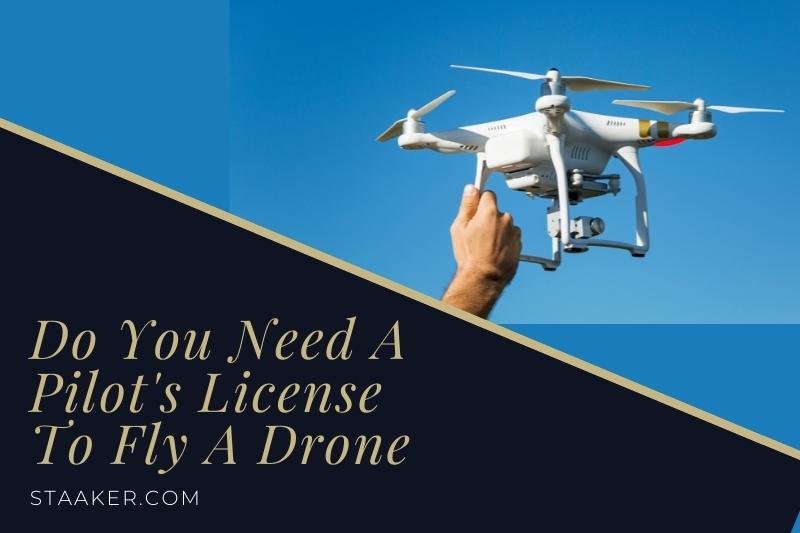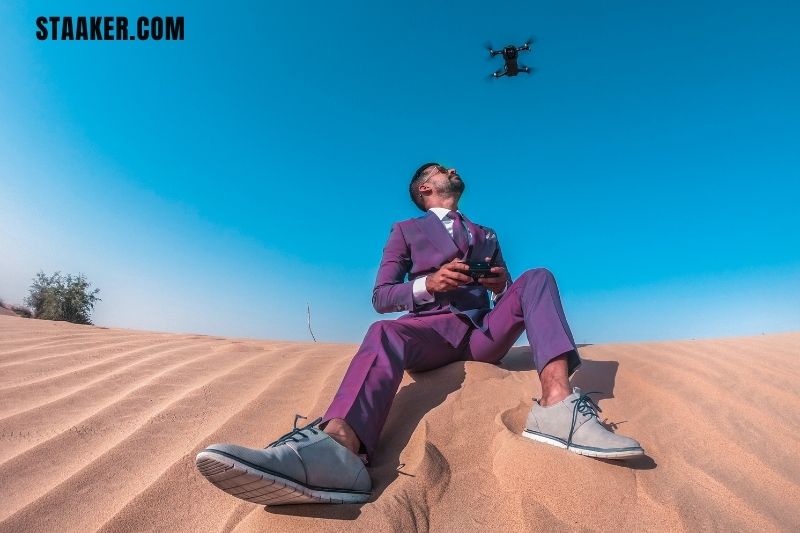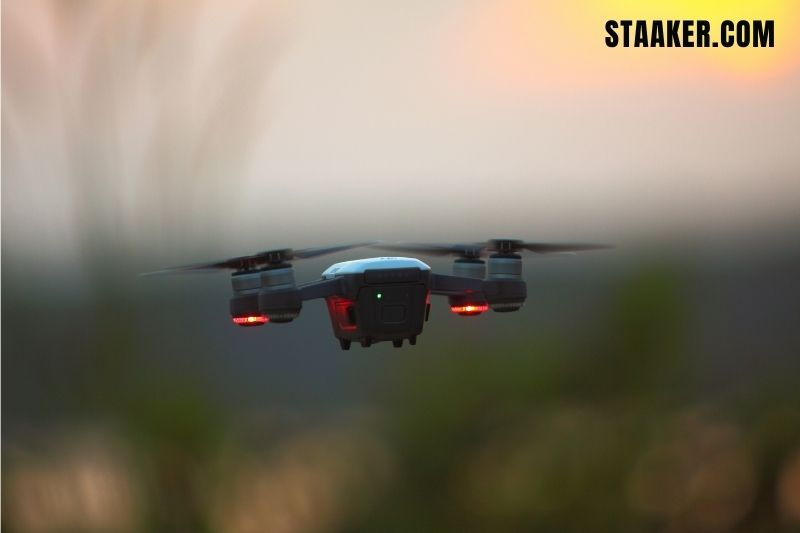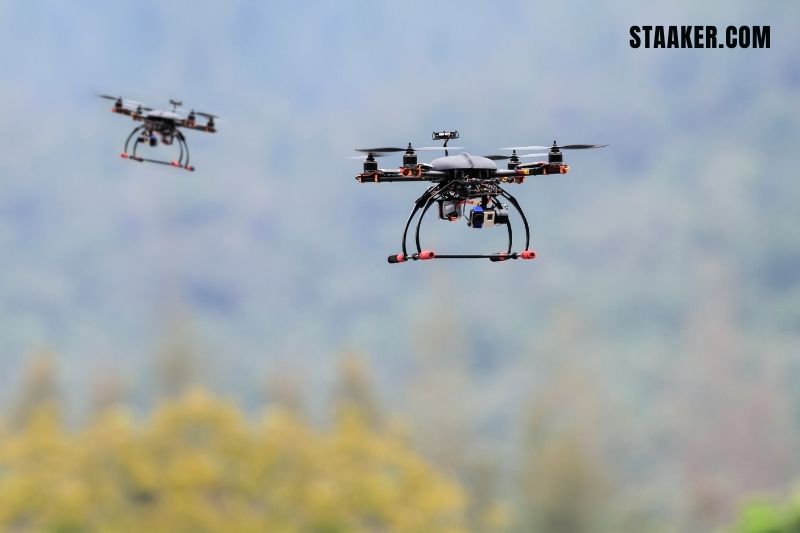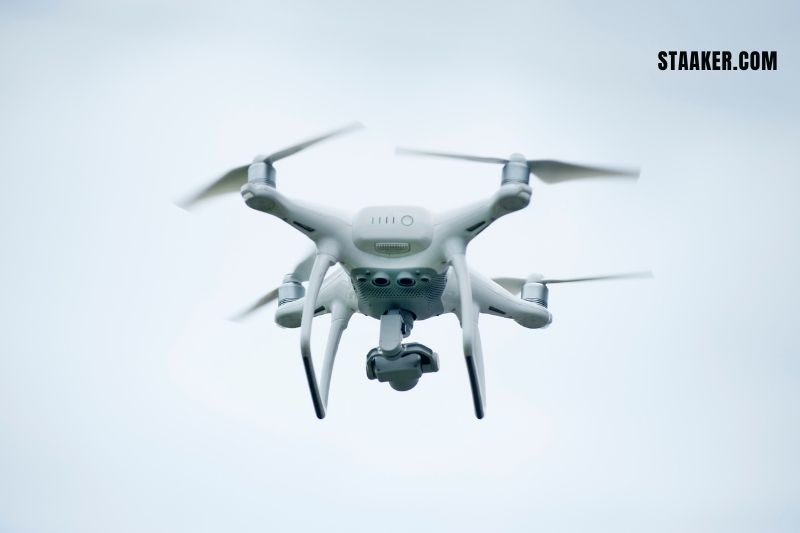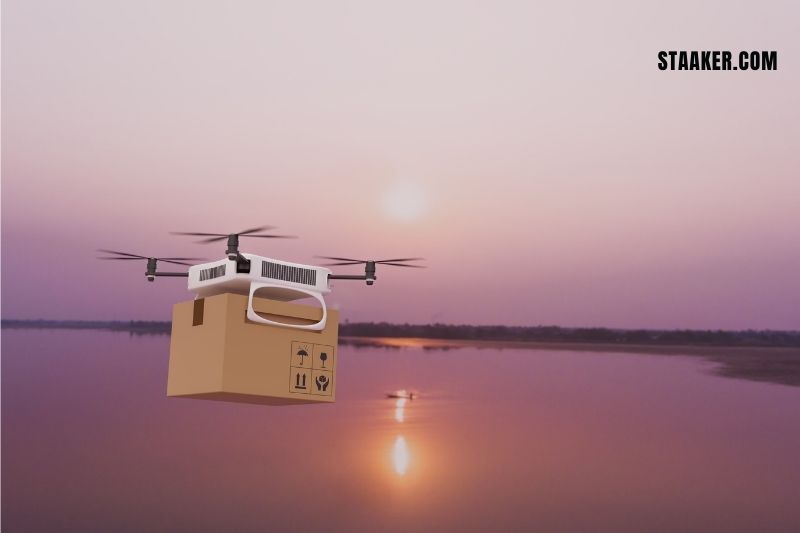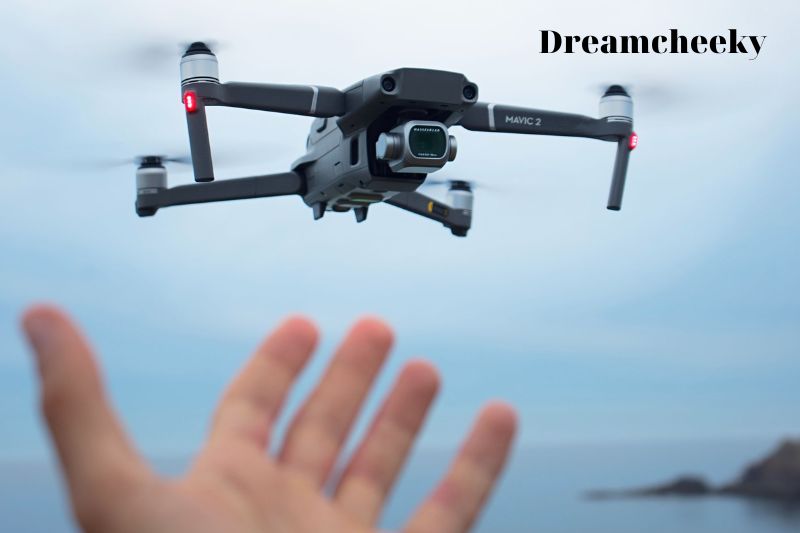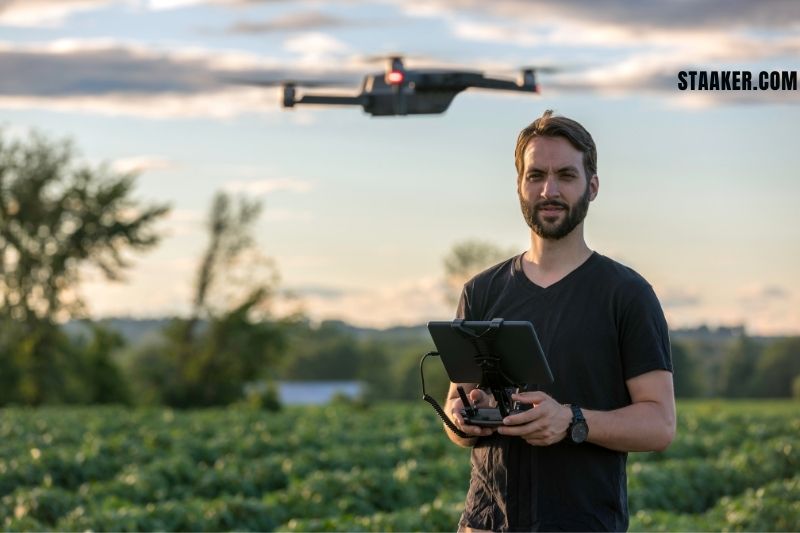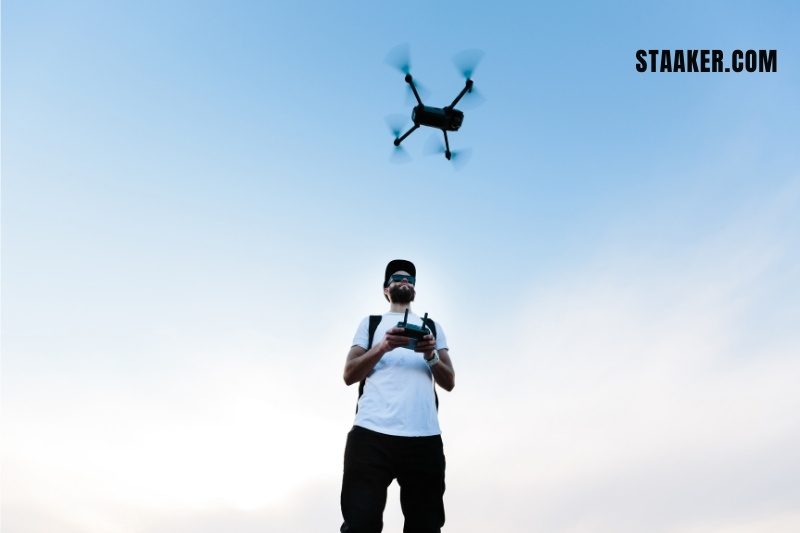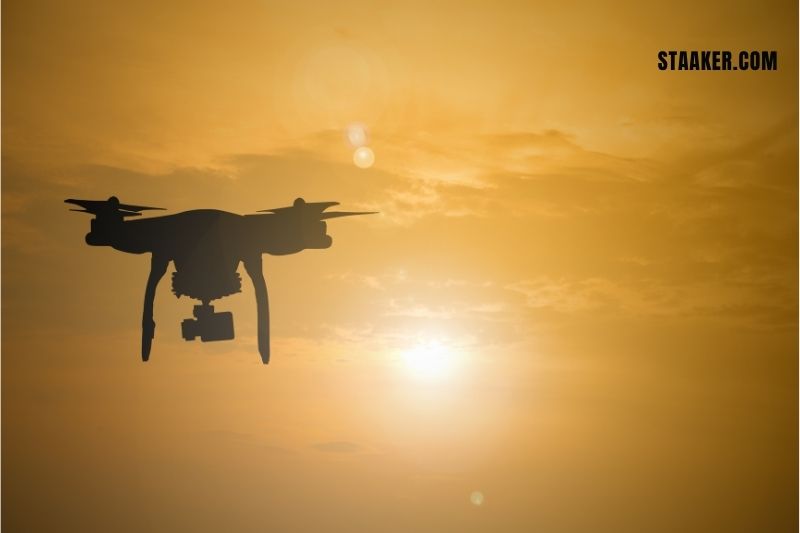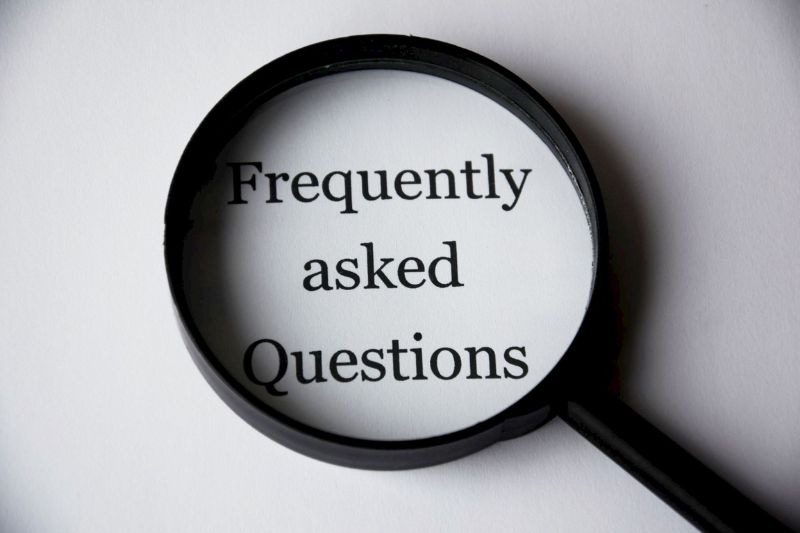Drones are becoming increasingly popular, but there are still many questions about their regulation. One common question is that do you need a pilot’s license to fly a drone.
The answer to this question depends on a few factors, including the size and weight of the drone and where you plan to fly it. This article will outline the basics of drone regulations and what you need to know to fly safely.
What Is A Drone License, And Why Is One Required?
To operate a drone, whether, for leisure or commercial purposes, all pilots must possess a valid certification.
How Can Recreational Drone Operators Legally Operate Their Craft?
Flight drone pilots must pass the Recreational UAS Safety Test (TRUST). This online course is completely free and takes between 15 and 30 minutes to complete.
Moreover, recreational drone operators must register their aircraft if it weighs more than 250 grams. The cost to register a drone is $5, and the registration is suitable for three years. Multiple drones can have the same registration number. FAA Drone Zone allows you to register your drone.
Recreational drone operators must also adhere to other simple regulations. You may only fly your drone no higher than 400 feet in altitude. Additionally, clearance is required to operate in regulated airspace near airports. There is a free course that explains all the regulations.
How To Get A Part 107 Drone License?
FAA Part 107 certification is essential if you operate your drone for any purpose other than leisure.
In addition to requiring commercial drone pilots to get licenses, Part 107 imposes several limits on drone flight. These limits include, among others, not flying drones over crowds or moving vehicles, flying only within the pilot’s line of sight, and always deferring to manned aircraft.
In the past few years, the Part 107 regulations have been subject to multiple rounds of review and amendment.
Part 107’s drone license is one of its most essential components. A drone pilot must meet a few requirements, be verified by the TSA, and pass a 60-item Part 107 knowledge test to obtain a license. This assures that all commercial drone pilots have a minimum level of competency and are aware of the restrictions and procedures required under Part 107.
This also permits the FAA to document these commercial drone pilots and assists them in collecting data to make informed judgments.
Those interested in obtaining a drone license must complete many stages, pay several hundred dollars, and wait approximately two months. This is a general overview of the certification process to get you started. However, we have more in-depth materials on our website.
Before applying for a drone license, the FAA needs the following minimum qualifications:
- Must be at least 16 years old
- Possess English reading, writing, listening, and speaking skills
- Be mentally and physically fit to pilot a drone.
- After completing a 60-question multiple-choice exam, submit your application to the FAA.
Before registering for the knowledge exam, you must get an FAA Tracking Number (FTN), a unique code provided to each airman. This will be associated with you during your entire aviation career.
You can register for the knowledge test at over 700 FAA-approved testing sites in the United States. Computer Assisted Testing Service conducts the examination (CATS). You must pay a non-refundable $160 testing cost.
We will not detail how to prepare for the knowledge test. All you need to know is that an abundance of paid and free study materials are available online.
Pilot Institute provides the online course. Part 107 Made Easy includes over 13 hours of instructional videos, over 250 practice questions, an 11-page illustrated cheat sheet, and a flashcard app.
To pass the knowledge examination, you must correctly answer at least 70 percent of the questions. All questions are selected automatically from a wide pool of questions, guaranteeing that each set is unique. You will have 120 minutes to finish the exam.
Before your application to become a drone pilot can be processed, you must pass a TSA background check if you pass the test.
This might be completed within a week, or it could take up to two months, depending on their backlog. In each scenario, the only action required is to wait for the findings.
You’ll know that you passed the background check when you receive the email holding your provisional certificate. To operate your drone commercially, this document must be printed and carried with you. While the temporary certificate remains valid, you should get your permanent certificate by regular mail.
What Counts As Commercial Drone Use?
Any drone flight operations that result in direct pay or are utilized to further a business are deemed commercial and require a license. Paid wedding photography and building site inspections are examples of commercial drone use.
However, there may be a few instances where making this distinction is not so straightforward. Without a drone license, you cannot shoot aerial images of your home to market it online if you’re attempting to sell it.
The same is true if you own a construction company and utilize a drone to monitor your ground operations. Even law enforcement cannot utilize drones for search and rescue or surveillance without a licensed drone pilot.
In addition, remember that the FAA requires that the drone operations’ purpose be specified before takeoff. This means that you cannot shoot aerial photographs during a leisure flight and then sell them to a customer in the future.
You are also prohibited from posting them to your social media profiles if you profit from such posts.
Even individuals who already possess a drone license and fly under Part 107 regulations must remain abreast of local drone laws. Even though some of these state or local laws clash with FAA requirements, getting caught in such a situation would be unwise.
Read more some local laws when flying drone:
How Long Does It Take To Receive A Drone License?
Most of our students receive their FAA drone pilot license within four to six weeks, beginning to end.
You will receive your official certification card in the mail six to eight weeks later. It is laminated and elegant, making it perfect for events.
When Should You Obtain A Drone License: Recreational versus Commercial Use
Part 107 laws distinguish between two instances in which a drone license is required:
When you use your drone for labor or business, known as commercial use, you must obtain a license.
You do not need a license if you only fly your drone for leisure, i.e., for recreational purposes.
Even with these clearly stated use cases, there is often uncertainty regarding when a drone license is required. It is vital to clarify that commercial operators may continue to fly recreationally. However, recreational pilots may not undertake commercial flights.
What Does A Drone Pilot Do?
Drone pilots can operate in numerous industries, including:
- Real estate: Real estate agents will occasionally engage drone pilots to photograph and film property.
- Marketing: Businesses might employ a drone pilot for their marketing campaigns.
- Surveying: Drone pilots aid in the collection of data for new projects and maps.
- Building and construction: To develop 3D photos of a new construction project, construction companies may collaborate with a drone pilot.
- Entertainment: Drone operators can also take photographs or films for concerts, movies, live sporting events, etc., in the entertainment industry.
- Some insurance companies employ drone pilots to collect information about insurance claims.
- Safety: Drones can collect thermal imaging data, assisting public safety professionals such as firefighters.
How To Become A Drone Pilot
If you wish to become a commercial drone pilot, you must complete the following: Subscribe, rent, or purchase a drone.
To qualify as a commercial drone pilot, you must possess a drone.
Many companies can give you a drone if you join them. However, most drone pilots obtain their own to hone their technical abilities.
Therefore, you may consider renting or subscribing to a drone.
You may also locate all the essential camera equipment that any aspiring photographer must-have.
Study and get ready
As a commercial drone pilot, you are required by the Federal Aviation Administration to obtain a certificate (FAA). Similarly to taking a test, studying is helpful. Therefore, examine the most current eligibility standards and rules.
You can study solo or join an online study group, which could be helpful if you enjoy group work. Explore nearby study choices, such as online training courses and study aids, to prepare for your exam.
Pass the FAA examination
Register to take the knowledge test at a nearby FAA testing center once you have prepared. You will have two hours to finish the exam. The exam consists of sixty multiple-choice questions on a variety of topics, including:
- Drone regulations and laws
- Flight limitations
- Plans for aviation weather
- Airport administration
- Maintenance activities
Obtain a remote pilot certificate
After passing the FAA exam, you can submit an online application for a remote pilot certificate.
The FAA office (which I expect will feature slides, disco tunnels, and a foosball table) will next assess your application, do a background check, and mail you a drone pilot certificate if you are deemed qualified.
Note: If you wish to obtain a drone pilot license in the EU or the United Kingdom (thanks, Brexit), you must contact the UK’s Civil Aviation Authority (CAA). The CAA divides drones into three main groups based on their weight and function.
The unrestricted category
This category includes the majority of commercial drone applications. However, these drones cannot fly above “uninvolved individuals” under any circumstances.
Drones of subcategory A2 can fly within 30 horizontal meters of uninvolved persons and as close as 5 meters while in low-speed mode.
The majority of commercial drones fall under class A3. This class of drones can only fly in areas with no uninvolved individuals or buildings within 150 meters of your line of sight.
The Particular and Certified classes
These categories involve more dangerous drone applications. Before every flight, drones in a Specific category require specific authorization. In certain instances, pilots merely declare their intent to fly in advance. The drone and the operator must be licensed for flights in the Certified category.
After determining which category best suits your circumstances, you can begin the licensing procedure by registering with the National Aviation Authority in your location. Each EU member state has its own National Aviation Authority (the CAA handles the licensing process in the United Kingdom).
You are responsible for ensuring that your drone is adequately insured in your country and passing the test for your category.
Each test comprises 40 multiple-choice questions. Potential pilots in subcategory A2 must answer 30 additional multiple-choice questions on topics such as mitigating ground danger.
Before adopting the EU approach, the United Kingdom required drone users to apply for authorization (or a license) for any commercial usage or flights over 1,200 feet above the ground and within a certain distance of populated areas.
Register your drone (if needed)
Once you’ve dealt with all the mundane details, you may begin to fly. If you obtained your certification from an FAA office, you must register your drone. This can be completed online, and it is suitable for three years.
Hone your flying skills
After obtaining the necessary certification, you can begin working as a commercial drone pilot. Possessing this certification is fantastic; having experience flying a drone is beyond belief.
Many organizations may look for previous flying experience when hiring a drone pilot. Consider that after you have that golden certificate in hand, practicing your flying talents will help you land more roles.
If you don’t know drying your drone, refer to this guide to start: How to fly a drone.
Find a suitable career opportunity
After becoming a drone pilot, you can determine how your day unfolds (almost).
Consider: Is there a particular industry in which you wish to work? Do you wish to practice photography or filmmaking with a drone? Do you intend to do it full-time or merely as a hobby?
You may wish to begin your profession as a drone pilot by doing side tasks. You may, for instance, work another employment while completing drone projects on the side.
This allows you to expand your technical abilities, establish client relationships, and acquire experience while earning extra revenue.
What Skills Are Required To Become A Commercial Drone Pilot?
- Have the mindset of a photographer’s
- Consider the mindset of a videographer.
- Must have mastered the art of drone flight.
Aerial video requires fluid and continuous movements; otherwise, the footage will appear jerky and amateurish, which will affect your listing. The pilot must possess the skill and experience to execute cinematic drone maneuvers while maintaining composure.
To become a drone pilot, you must comprehend the fundamentals of flight, lift, drag, and aerodynamics.
- Possess the fundamental understanding of a meteorologist.
The weather, cloud forms, isobars, and air pressure must be understood. This has an impact on the quality of a shoot.
- You must be an airman to become a drone pilot.
You must know how to communicate with ATC and when to do so. You must know when the sky will be crowded with thrill-seeking retirees jumping out of airplanes. You must understand how and when to report events to the appropriate entities.
You must exhibit sound judgment and highly developed skills to reach flight objectives. A high level of situational awareness permits the early identification of threats, etc.
You may discover that the Operation Area is close to an airport’s Flight Restriction Zone; thus, you must exhibit excellent airmanship and file a Flight Plan with Air traffic Control. It would help if you verified with multiple aviation websites that the sky will be filled with hot air balloons.
Is there a School or a prison nearby? These are no-fly zones that must be omitted from the flight plan. Frequently, a neighboring Helipad or tiny private runway may be present. All of them must be called and informed. Likewise, the local police are notified if the flight is near a town or village.
Possible dangers and hazards include Pylons, trees, and the possibility of military activities. They must be identified and reduced to an appropriate level.
Develop the abilities of a Ukulele Player
You must find something to do while waiting for the rain to stop! Many feathers and many hats.
There are situations in which such a vast array of creative skills is unnecessary. If all you need is a land surveyor property examination and a presentation to the board, it may be excessive to hire David Bailey. However, a wide variety of specialized skills and equipment are still required.
As the market has evolved, drone pilots have specialized in site inspection and surveying fields. This booming industry is ideal for drone pilots who are perhaps more technically inclined than imaginative.
Check out Best Places To Fly A Drone And Where Are Drones Banned if you don’t know place to fly your drone
FAQs
1. Can a DJI drone be flown without a license?
Any drone owner used for commercial purposes must obtain a valid pilot’s license. If you only use a drone for recreational purposes, you are exempt from this rule. Also, every drone must be registered and have a registration number, regardless of its use.
2. Can I fly my drone over houses?
Yes, in a lot of scenarios. In this instance, refer directly to the CAA and the Drone Code. Contact the pilot for more information if you feel they are not flying legally.
3. What happens if you fly a drone above 400 feet?
If someone is flying drones in controlled areas above 400 feet, the FAA can suspend or remove any pilot’s authorization.
Read our article to get more detailed information: How High Can A Drone Fly
Conclusion
If you’re considering buying a drone, it’s essential to understand the regulations in your area. Make sure you have the right license and certification and follow all safety guidelines.
You can fly a drone for recreational purposes without a license. Still, if you want to fly a drone for commercial purposes, you must get a license from the Federal Aviation Administration (FAA).

